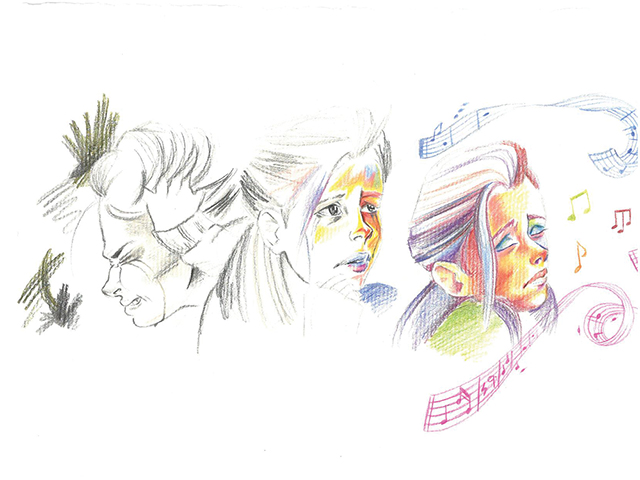
[dropcap]M[/dropcap]usic is a very powerful thing. Everyone has a taste, a favourite genre, an artist they love more than any other. It’s a form of entertainment that invades every inch of all our lives beyond our own choice some of the time. But it’s still just entertainment, right?
Perhaps not and it’s time we really start to appreciate the true power of artists and performers out there. Last month Limerick duo the Rubberbandits released their latest single entitled Sonny and its message was loud and clear. In their ongoing battle to raise awareness for men’s mental health, the song hits hard with its rather blunt chorus “Sonny oh Sonny don’t go hanging yourself”.
Now the Rubberbandits are by no means the defining Irish artists of this generation, nobody is saying that, but the point here is that they’re making a statement in a way that is unavoidable. And the truth is it’s needed more than ever and the bandits are being commended for their campaign.
However, music wasn’t always seen as this safe haven for those in need. In fact, it was quite the opposite. History has a terrible track record blaming musicians for the deprivation of the newest generation. Elvis Presley was routinely blasted for encouraging for his overtly sexual music that was perverting the minds of American youth. The Beatles followed suit being held as Satanic and pagan brain-washers among the Christian community.
Unfortunately, this trend did not stop anytime soon. There was always a new wave of music that threatened the norms of society and unfortunately fell victim to the blame game.
In 1984, 19-year-old John Daniel McCollum tragically took his own life while lying on his bed listening to Ozzy Osbourne. Naturally, it was easy to see where his father was coming from. McCollum’s father emotionally claimed “[He’s] a perfectly normal kid there, who really doesn’t show any signs of any depression at all, and happy and all of a sudden, six hours, he’s dead. No one [could] explain it, the only thing we know is he was listening to this music.”
It is easy for us to want to pinpoint one specific explanation but the truth is a lot of vulnerable people take so much solace in the escape that music provides. Ozzy expressed his sadness about the incident on several occasions but never took responsibility and rightly so.
These events were echoed in the early 2000s following the fatal Columbine shootings when students Dylan Klebold and Eric Harris murdered 13 people before turning the guns on themselves. Marilyn Manson was the latest scapegoat for this tragedy and amongst all the controversy it was easy to pin it on one man.
We have learned a lot since but it is interesting to note that society did not like talking about the complexity of suicide and mental health. It was quite lamentable to see people who brought a lot of happiness and relief to so many be lambasted in the public eye like this. Yet despite the criticism, these artists stayed compassionate. When Manson was asked what he would say to the shooters he famously replied, “I wouldn’t say a single word to them, I would listen to what they have to say because that’s what no-one did”.
Men in Ireland are particularly unequipped when it comes to the topic of mental illness and there is no denying that. There is a real struggle to face up to problems or even admit they need help which is admittedly easier said than done. Nobody likes to admit there’s something wrong and understandably so with such a stigma around mental health.
What is important to notice is that we have grown a lot over the years and understand things a little bit better. The Rubberbandits latest tune has been met with overwhelming support and there is a real lesson to be learned here.
Music has the power to change lives and the fact that the Rubberbandits are utilising it to change perceptions, and face the issue head on is a real testament to where we have come when we link music with mental health. Blind boy stated on the Late Late show “My generation are either leaving the country or jumping in rivers”.
It is time that we talk about these issues because they are real, they do exist. Music can help either by pushing the subject out into the open or even acting as a stress buster that can alter our moods. One thing we can learn is that these artists are not part of the problem, they are very much part of the solution.
Men are almost five times more likely to commit suicide than women in Ireland according to the Journal.ie and if music can play a small part in helping to change that then the Limerick duo are certainly doing something right.



